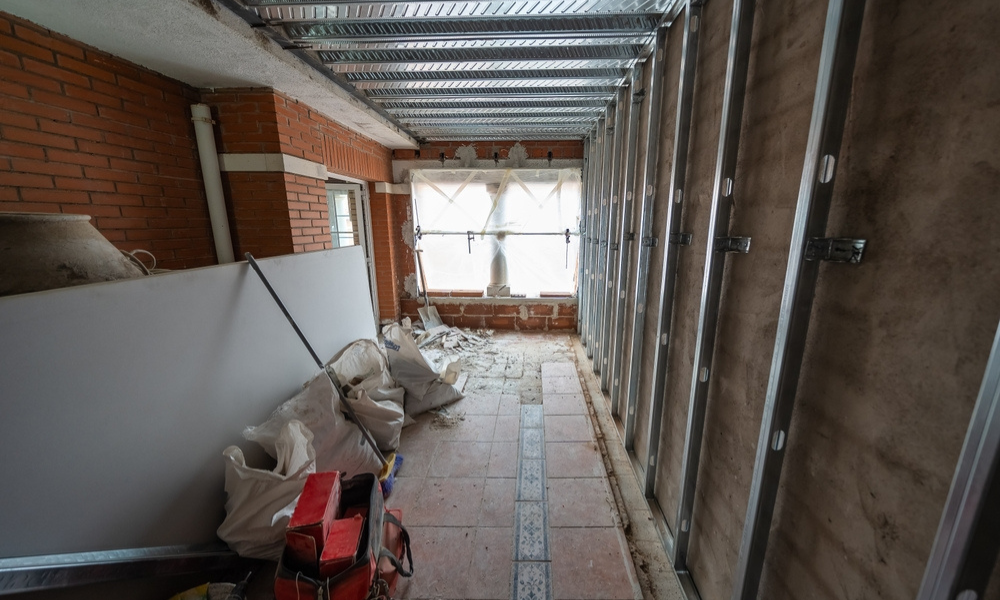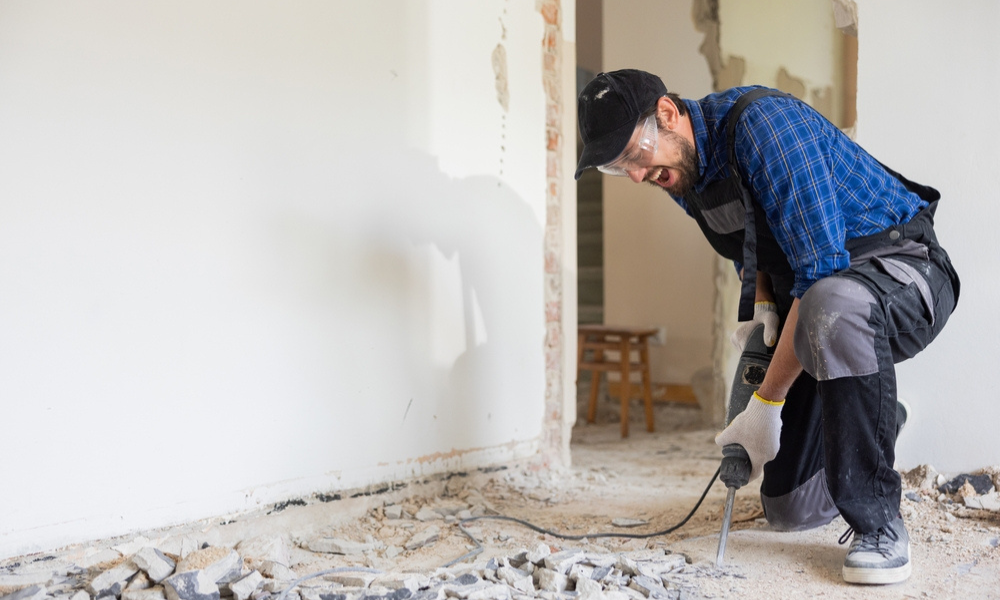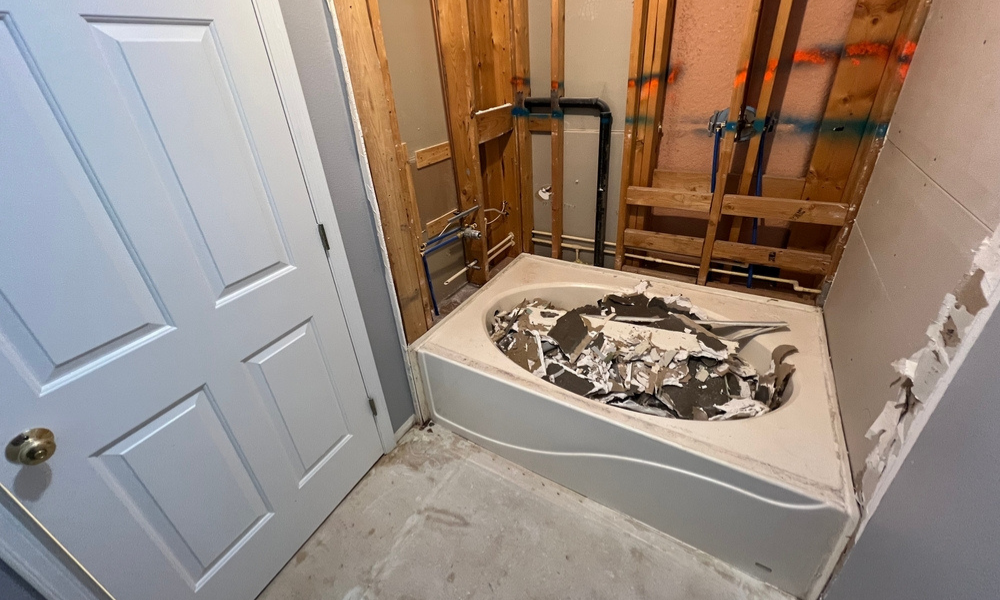Estimated reading time: 5 minutes
Tearing things apart can be oddly satisfying—until you realize you just knocked down a load-bearing wall. Taking down structures may seem straightforward, but it’s more than just swinging a sledgehammer. Whether you’re removing a few walls to open up space or gutting an entire area, the real question is: Should you handle it yourself or call in the experts?
I’ve worked in this field long enough to know that not every project is a weekend job. Sure, you might save some money by doing it yourself, but is it worth the risks, time, and effort? On the other hand, professionals bring efficiency, safety, and the right tools.
What You’ll Learn
The advantages and risks of handling a project solo
Why bringing in experts might be the smarter choice
How to determine which option fits your situation
Cost factors, safety concerns, and legal requirements
When it’s better to leave the job to skilled hands
By the end, you’ll know which route makes the most sense for your project.
DIY: A Hands-On Approach

When It Makes Sense to Do It Yourself
I get it—demolition can be tempting. There’s a thrill in tearing down old walls with your own hands. If your project is small and manageable, taking the independent route might work. Here’s when that’s a reasonable choice:
Removing outdated flooring or tiles
Tearing down non-load-bearing walls
Dismantling cabinets, vanities, or shelving
Taking apart small backyard structures
These tasks don’t typically require specialized equipment or advanced skills. But before you dive in, consider the risks.
The Risks of Doing It Yourself
Safety Hazards: Ever hit your thumb with a hammer? Now imagine dealing with sharp debris, wiring, or hazardous materials. One mistake could result in injury—or worse.
Hidden Dangers: Some walls hold pipes, gas lines, or structural supports. If you take out the wrong one, you could be dealing with costly repairs.
Time Commitment: What looks like a weekend project can stretch into weeks without the right experience.
Waste Disposal: Tearing things down creates a lot of debris. Do you have a plan for removing it legally and efficiently?
Before getting started, take a look at A Beginner’s Guide to Residential Demolition Projects for tips on where to begin.
What You’ll Need
If you decide to go ahead, having the right gear is crucial. Make sure you have:
Safety goggles & gloves
Heavy-duty boots (trust me, you don’t want to drop a brick on your foot)
A dust mask or respirator (especially for older homes)
Crowbars, sledgehammers, and reciprocating saws
Plastic sheeting & tape (to keep dust from spreading)
Why Experts Are Often the Better Choice
When You Should Call in the Pros
Removing structures isn’t just about breaking things—it’s about doing it safely and correctly. Here are situations where hiring a team is the better move:
Structural Changes: If it involves walls that support weight, roofing, or foundation work, don’t risk it. One wrong move can compromise the entire space.
Hazardous Materials: Older buildings may contain lead paint, asbestos, or mold. Professionals know how to handle these safely.
Larger-Scale Projects: If you’re clearing an entire house, garage, or commercial space, pros will get the job done quickly.
Permit Requirements: Many projects require approval from local authorities. A licensed contractor takes care of that for you.
Need help choosing the right company? Read How to Choose the Right Demolition Company Near You.
The Benefits of Hiring a Professional Team
Safety First: Crews follow strict protocols to minimize risks.
Faster & More Efficient: What takes a DIYer weeks might take an expert a day or two.
Proper Waste Handling: Licensed companies dispose of debris legally.
No Guesswork: They understand which elements should stay intact while removing what’s necessary.
Curious about the process? Read What to Expect During a Commercial Demolition Process.
Cost Breakdown: Doing It Yourself vs. Hiring a Pro

Money often plays a major role in decision-making, so let’s break it down.
Estimated Costs of a DIY Project
Tool rentals: $50–$300 per day
Dumpster rental & waste removal: $300–$1,000
Protective gear & materials: $100–$500
Permit fees (if needed): $100–$500
Typical cost range for DIY: $500–$2,000
Estimated Costs of Hiring Professionals
Labor & equipment: $1,000–$5,000 for smaller jobs
Full building removal: $10,000+
Hazardous material removal: Additional $1,000–$5,000
Hiring experts typically costs: $3,000–$15,000, depending on the scope
Want more details? Check out The Cost Breakdown of Hiring Demolition Contractors.
Legal & Environmental Considerations
Permits & Regulations
Many cities require permits for this type of work.
Some areas have restrictions on material disposal.
Hiring professionals ensures compliance with local laws.
Environmental Responsibility
Recycling materials (wood, metal, bricks) reduces waste.
Many companies focus on sustainability—learn more in Eco-Friendly Demolition: How Experts Reduce Waste.
Making the Right Choice
Go DIY If:
The project is small and non-structural
You have experience with tools and safety procedures
You’re prepared to invest time and effort
Hire a Team If:
The job involves load-bearing walls or hazardous materials
You want a faster and more efficient process
There are legal permits or safety concerns involved
Still not sure? Learn about When It’s Time to Consider Demolition Services.
Final Thoughts
Taking apart structures can be rewarding—or a costly disaster. Whether you handle it yourself or bring in experts depends on the scope, budget, and risks involved.
If you’re working on a simple task, go for it. But if there’s any doubt about safety, structural integrity, or legal concerns, hiring trained professionals is the better investment.Need trusted experts for the job? Reach out today. Because when things come down, they should come down the right way.



